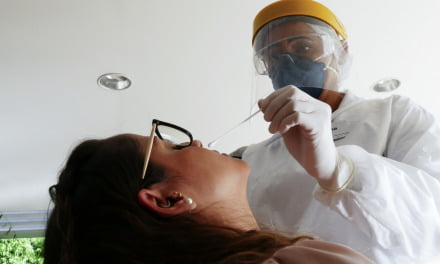There has been some confusion over recent days regarding entry requirements for anyone flying to Gran Canaria and The Canary Islands, whether from inside the EU/Schengen area, or from outside, so-called, third countries.
The European Union has a adopted a policy of allowing unvaccinated travel between member states and Schengen zone countries, though a negative test result is required (for PCR, TMA, or LAMP NAAT tests) within 72 hours prior to entry, however rapid antigen tests will be accepted if obtained no more than 24 hours ahead.
The EU has also adopted a validity time limit for the EU Green Certificate, which means that vaccinated travellers must have had a booster shot within 270 days of completing their vaccinations. The controversial rule will mean that even vaccinated travellers will have to return regularly for booster shots if they wish to avoid having to test prior to every journey.
There is a great guide to found at the main Canary Islands Tourism Website: HelloCanaryIslands.com
 For anyone travelling from outside of the EU things are a little less clear, if more restrictive, particularly for any third countries denoted high risk. Though who exactly is on the high risk list is something for conjecture, based on the Spanish government having only produced a single risk list, and when it comes to non-EU countries, they have found it more expedient to just publish a list of countries not viewed as at Risk.
For anyone travelling from outside of the EU things are a little less clear, if more restrictive, particularly for any third countries denoted high risk. Though who exactly is on the high risk list is something for conjecture, based on the Spanish government having only produced a single risk list, and when it comes to non-EU countries, they have found it more expedient to just publish a list of countries not viewed as at Risk.
All UK travellers must be fully vaccinated within the last 270 days prior, or have received a subsequent booster shot in that time; as well as having a negative test result on entry.
Nevertheless, what is clearer is the advice being offered by HelloCanaryIslands who diligently maintain an up-to-date resource detailing their understanding of the most recent entry requirements for travellers coming to the archipelago.
IF YOU ARE TRAVELLING FROM THIRD COUNTRIES AND YOU ARE NOT EU CITIZEN
Passengers must meet the following requirements:
- Control form. We recommend completing the form digitally, including all of the necessary documents in order to speed up airport checks (fast control). If you are travelling on a cruise ship, this is the form you need to complete.
- Certificate of full vaccination against COVID-19. Accompanying persons under the age of 12 are exempt. Residents of the United Kingdom of Great Britain and Northern Ireland travelling directly from their country must arrive in Spain with a vaccination certificate.
- In addition, a Diagnostic Test of Active COVID-19 Infection will be required regardless of vaccination status or prior infection, for third countries at high risk only. Antigen tests taken a maximum of 24 hours before arrival in Spain and NAAT tests (PCR, TMA, LAMP) taken a maximum of 72 hours before arrival in Spain will be accepted. Third countries not considered risk countries are excluded from this rule. Their citizens may enter on the same terms of access as those for risk countries of the EU and Schengen.
Infections and hospital admissions have started to drop this week, though pressure on healthcare still remains high. All islands remain at Alert Levels 3 or 4, with confidence that the situation is set to improve vigorously throughout February.New rules on entry requirements are causing confusion for many, with third country travellers over the age of 12 years, coming from risk countries, now required to be vaccinated, and/or boosted within the last 270 days, and having to present a valid negative test result on entry to all Spanish territories.Businesses are rightly worried that these rules will keep some visitors away.Timon .:.














We will be cancelling our trip shortly.
The rules are ridiculous.
Both my over 12 have had their jabs but the second is within 14 days so we can’t go.
Spain is allowing unvaccinated to travel from within the EU.
I am not sure why they would harm their economy this way.